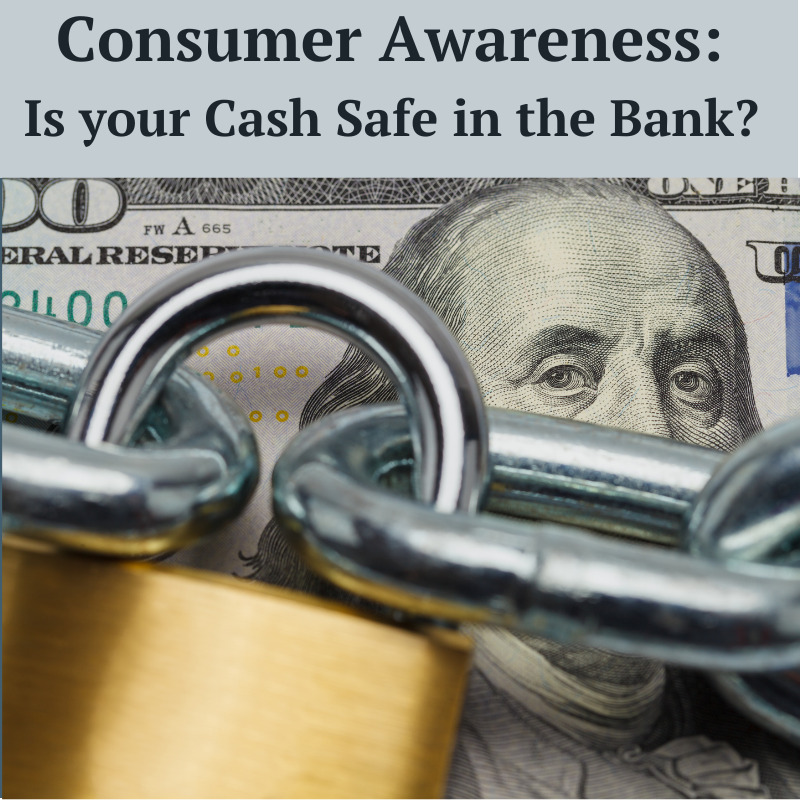With times of high volatility in the stock market and questionable stability of the economy as a whole, many individuals may start to question the safety of cash they keep in their personal banks. Remembering their history lessons of the Great Depression of 1930 (accounts were partially or fully lost, banks failed) or remembering The Great Recession that started in 2008 (several investment money market funds with consistent $1 NAV’s (net asset value per share) dropped in NAV), it’s no wonder savers in any stage of their life may be concerned. The good news is that while no one can guarantee the financial security of any financial institution, Congress put consumer protections in place by providing deposit insurance to banks and account types that qualify.
There are two terms you need to look out for when reviewing your banking options: FDIC which stands for the Federal Deposit Insurance Corporation and NCUA which stands for National Credit Union Administration. Typically it is easily displayed and located on labeled on banking literature as FDIC or NCUA Insured. If you have questions as to whether a bank is FDIC or NCUA Insured, for traditional banks you can use the FDIC’s database search and for credit unions you can call the Credit Union locator.
Why is it Important for your bank or credit union to be FDIC or NCUA insured? Both FDIC and NCUA insurance offers a guaranteed protection that should the financial institution become insolvent, you are still entitled to your deposit accounts. It guarantees up to $250,000 per person, per institution, per ownership category. For joint accounts, each owner is assumed to have equal interest in the account, with each insured for up to $250,000 for a maximum amount of $500,000.
What type accounts are insured? Well it depends. Accounts that can be insured include single, joint, and revocable trust accounts. Additionally, this may include Certificates of Deposits, retirement accounts and money market accounts as well. The criteria of why an account may be excluded from being FDIC or NCUA insured is the account is considered an in investment product. (Although these investment accounts may be Securities Investor Protection Corporation Insured.) If you have any reservation about these accounts and whether they are insured, please contact your bank.
What are a few things you should be doing?
- Keep an up-to-date balance sheet to make sure you don’t go over the insured amounts per account at a financial institution.
- Limit your exposure in high-yield online only savings accounts with newer, smaller online-only based companies (especially if they have poor consumer report ratings). While they may offer great interest rates, their customer service may be lacking and if you have questions or concerns about your account, it may be difficult to speak to a live representative.
- Work with your financial advisor to analyze how much cash you feel comfortable keeping at the bank, and best places to establish a banking relationship.
- Last but not least, before you make any decisions on relocating cash, contact your Financial Advisor to review strategies that are best for you based on your individual situation. No two situations are alike!
Of course, while these protections are in place, that doesn’t mean there aren’t other risks at play, such as high inflation. High inflation can diminish your buying power year after year. This means while you don’t lose money on paper, your ability to purchase goods and services is reduced. Consulting with your financial advisor to determine your proper cash allocation can keep you prepared for any situation.


